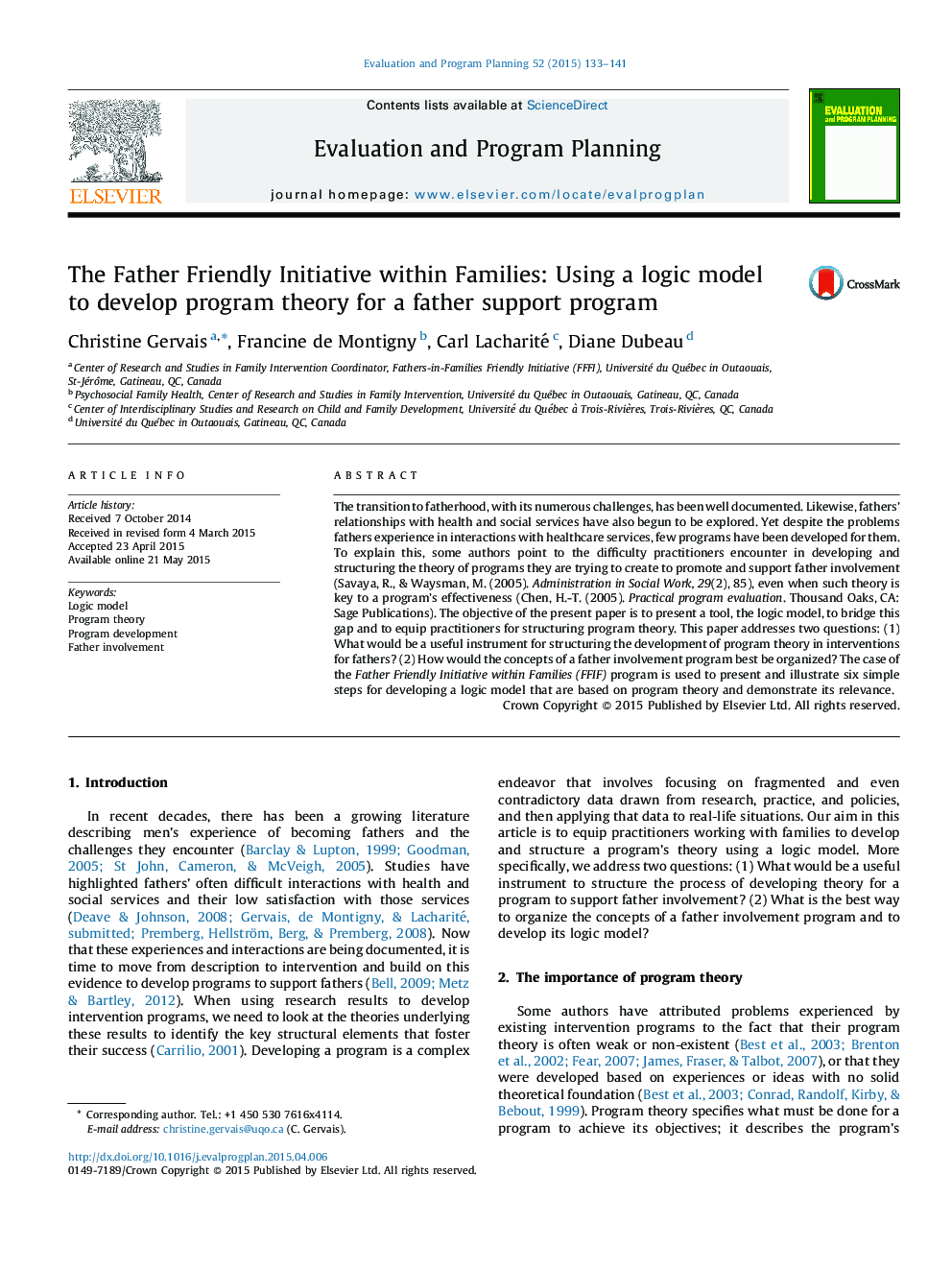| Article ID | Journal | Published Year | Pages | File Type |
|---|---|---|---|---|
| 6793111 | Evaluation and Program Planning | 2015 | 9 Pages |
Abstract
The transition to fatherhood, with its numerous challenges, has been well documented. Likewise, fathers' relationships with health and social services have also begun to be explored. Yet despite the problems fathers experience in interactions with healthcare services, few programs have been developed for them. To explain this, some authors point to the difficulty practitioners encounter in developing and structuring the theory of programs they are trying to create to promote and support father involvement (Savaya, R., & Waysman, M. (2005). Administration in Social Work, 29(2), 85), even when such theory is key to a program's effectiveness (Chen, H.-T. (2005). Practical program evaluation. Thousand Oaks, CA: Sage Publications). The objective of the present paper is to present a tool, the logic model, to bridge this gap and to equip practitioners for structuring program theory. This paper addresses two questions: (1) What would be a useful instrument for structuring the development of program theory in interventions for fathers? (2) How would the concepts of a father involvement program best be organized? The case of the Father Friendly Initiative within Families (FFIF) program is used to present and illustrate six simple steps for developing a logic model that are based on program theory and demonstrate its relevance.
Related Topics
Health Sciences
Medicine and Dentistry
Public Health and Health Policy
Authors
Christine Gervais, Francine de Montigny, Carl Lacharité, Diane Dubeau,
